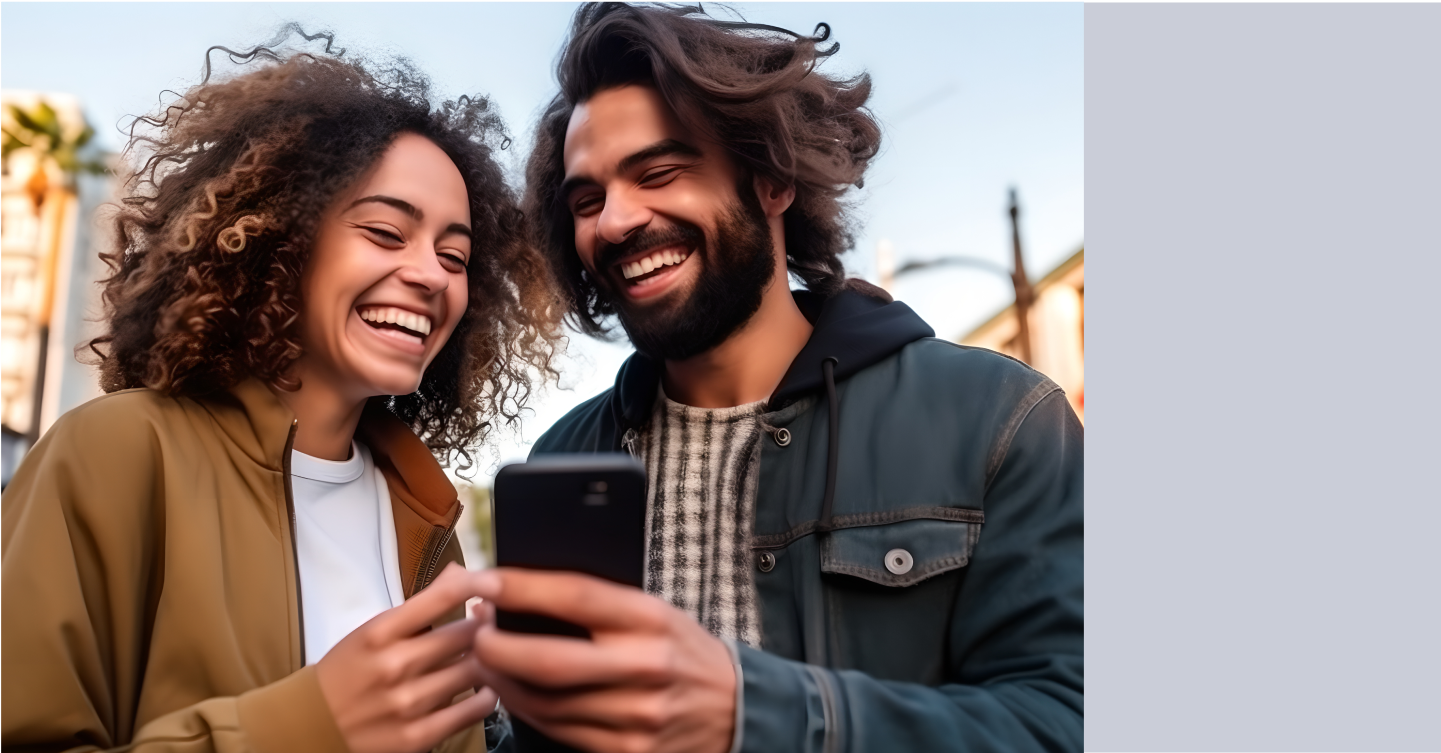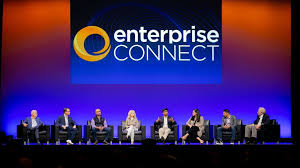Experience an out-of-the-box, no-code texting solution powered by Salesmsg

Time to read: 11 minutes
Interview with Salesmsg CEO Chris Brisson
At Twilio, we love being able to highlight some of our most innovative customers and brag about what they have built using our flexible APIs and software. We were able to sit down with Salesmsg CEO Chris Brisson to have a conversation around what his company has built and how they have continued to invest in their customers through robust customer engagement solutions.
Tell us about Salesmsg’s beginnings and how you became the company you are today.
Long before Salesmsg began, I kept hearing the same complaints over and over from customers at my previous business:
- “I’m calling people, but no one is picking up.”
- “I’m leaving voicemails, but no one is returning my calls.”
- “I send emails, but I barely get a response.”
At the time, I was also seeing these same issues in my business. You just couldn’t get customers’ attention with cold calls or emails anymore. Then we started texting. Suddenly, magic happened. Response rates soared.
I heard the same thing from other businesses that were texting at the time:
“When I send texts, I book appointments, schedule demos and close sales!”
It was obvious that customers wanted businesses to text them. Customers also wanted to hit “reply” and text their favorite businesses back.
The BIG problem: Very few businesses were set up for two-way texting at scale like this. So we built the solution: Salesmsg.
Salesmsg is our all-in-one texting and calling platform. It’s a simple, scalable, trackable and fully transparent platform that makes it easy for all kinds of businesses to text and call their customers.


Using Salesmsg’s platform, you can text and call your customers either from your computer or phone with our mobile app.
You can send two-way texts, so your customers can text you back. You can send SMS broadcasts or mass texts to a group of your contacts. You can also add automated texts to your campaigns or workflows, so your texts go out as your customers move through your campaigns.
We built the original MVP version of Salesmsg in a few months. That would have not have been possible without Twilio. Our dev team designed Salesmsg to sit on top of Twilio’s messaging API.
From a customer standpoint, this means you get the messaging capabilities of Twilio, only with a custom-built, ready-to-use platform that any marketer, sales rep, support person or other non-techie can use to start texting. (No coding or dev skills required.)
Since Salesmsg first launched in 2017, we have helped thousands of businesses introduce texting for their marketing, sales and support teams. It’s really changed how they speak to their customers.
Who are your customers? How are they utilizing your products and features? What does it mean for your customer to be successful? And what sets your solutions apart from your competition?
At Salesmsg, we serve customers in all kinds of industries. We have worked with clients in real estate, retail, finance, healthcare, education, hospitality, health and fitness, franchise operations, marketing agencies, software, home service providers and many other businesses looking for easier ways to connect with their leads and customers.
Over the years, we have found that businesses with a staff of 10 to 100+ get the most value from our Salesmsg platform. That’s because these SMBs and mid-market businesses use our texting and calling platform for all areas of their businesses including their sales, marketing, support, customer success and rev-ops teams.
Customers love our Salesmsg platform for many reasons.
For example, you can use our two-way platform to text and call your customers—and invite them to text and call you back. Support teams dig this, because they can respond to texted questions much faster than in email. Sales reps love this because they can text back and forth with leads to close deals. Sales teams can also have multiple texting conversations happening at once, so they can close multiple deals at a much faster pace than over the phone. Sales teams also love our automated follow-up texts.
With Salesmsg, you can send out SMS broadcasts or MMS broadcasts with videos, emojis, images or attachments. Marketing teams love this, because text messages have an average open rate of 98% (obviously much higher than emails). Marketers can send out mass texts about promotions, launches, content or anything else—and expect a much higher response rate than from emails.


Another reason customers love Salesmsg: Deliverability. At Salesmsg, we go out of our way to ensure all our customers get the best deliverability on their text messages. That means texts actually reach their customers’ phones. We often hear customers say they’re finally able to reach their customers again, now that they're using Salesmsg.
Above all, I think what really sets us apart is our integrations. Our team built Salemsg to have deep, seamless integrations with leading CRM platforms like HubSpot, Salesforce, ActiveCampaign, Pipedrive, Slack, Intercom, Zapier and others.
It only takes a few clicks to integrate Salesmsg with your CRM. Once you’re set up, you can text and call your CRM contacts. You can also set up campaigns inside your CRM to send out automated text messages with Salesmsg.
For example, we have a two-way native integration with HubSpot. After you connect your Salesmsg account to HubSpot, you can send out automated text messages through your HubSpot workflows. You can also use Salesmsg to send out text messages from inside your HubSpot account. That means you never have to leave your HubSpot account if you don’t want to.
Business to person text messaging has changed drastically over the last decade, how have you been able to innovate in the space and create a product roadmap that excites your customers?
Yes, it really has. At Salesmsg, we stay ahead of the game by constantly innovating.
Our product team releases new features or updates for Salesmsg every week. It’s crazy, but our dev team of less than 40 introduces 1,500 platform changes every year. (Many of those changes come directly from our customers’ requests.)
In 2023 alone, our team released 913 improvements to our app, 157 new features, and took care of 2,207 bugs for our platform. That includes many bugs that were handled in a matter of days. We also sent out over 104.9 million text messages for our customers.


This year, our team just rolled out an entirely new Salesmsg 2.0 platform—with many extra features and innovations we’re thrilled to introduce for our customers.
Our team’s strategy has always been to build for our customers. That’s how we stay ahead of trends like the mobile carriers introducing new compliance regulations or AI disrupting so many different industries.
Also, we know our customers have techstacks. They use multiple platforms and all those platforms need to work together. That’s why Salesmsg is integrated so tightly with Twilio, Zapier, HubSpot, Make, Slack, Intercom and many others. Our goal is to create an ecosystem for you, where Salesmsg seamlessly fits into your existing techstack.
Our team builds our product roadmap based on what our customers ask for. We use the tool called Canny to ask our customers: “What would you like to see inside Salesmsg?” Then our team responds by building those features.
So in short, we’re committed to evolving Salesmsg to match both what our customers want in terms of new features, and what customers need in terms of tight, seamless integrations with their ever-changing techstacks.
What is your vision for the future of customer engagement through texting?
At Salesmsg, we believe conversations are good for business. Texting is the fastest, easiest way to start those conversations with your leads and customers.
I believe that will continue in the next five, 10 and 15 years. Text messages will become even more of a “must-have” for businesses in that time, because customers of all demographics will expect to be able to text businesses. It will be the new standard for customer care, just like email became the norm in the 90s. (We’re already seeing this happen in many different industries.)
At Salesmsg, we want to prepare our customers for that future. We want to make it easy for customers to keep having these conversations that drive more business.
To do that, we’re building as many conveniences into Salesmsg as possible like end-to-end connectivity with your integrations, easy-to-use automation, new workflows inside Salesmsg, and canned responses so you can text back faster. We’re also building new AI features into Salesmsg like our AI Texting Assistant and our soon-to-be-released AI Textbot that’s coming out this year.
How have you approached bringing voice engagement into your platform? How have your customers responded?
Back in 2020, calling was our most requested feature from customers. So we added an entire built-in calling platform to Salesmsg.
Since then, our new voice and calling features have been driving triple-digit growth for our calling platform. It’s wild because Salesmsg is really known for our texting, but the calling side of our platform just keeps growing.
Our team has built so many cool features into our calling platform. For example, Smart Call Routing lets you redirect customer calls to the best person on your team. We have Conference Calling, so you can bring more than one person onto a call if you need to work on a project, or bring in a manager to help with a customer call. We have Call Waiting to make sure you never miss a customer call.
You can also use our IVR (which stands for “Interactive Voice Response”) to set up a phone tree for your customers. So when a new customer calls your business, they’ll hear something like “Press 1 for sales, press 2 for customer support.”
Inside Salesmsg, we also give you entire transcripts of every phone conversation with our Call Transcription. That makes it easier to follow-up with customers, and keep detailed records of each call.
And this is pretty cool too: We introduced Ringless Voicemail within the last year. With Ringless Voicemail, you can send pre-recorded audio messages directly to your customers’ voicemail—without picking up a phone or causing your customers’ phone to ring.
We have an AI feature built-in to Ringless Voicemail, so you can clone your voice to create these audio messages very quickly. You can even set up automated workflows inside your CRM (like HubSpot or ActiveCampaign) to trigger sending a Ringless Voicemail when your customers take a specific action.


So far, our customers love this feature. Right now, 20% of our call volume is all Ringless Voicemail. It’s very easy to set up inside Salesmsg too.
Why did you first start looking for a platform like Twilio? What kind of change were you trying to create?
Very early on at Salesmsg, we started looking at the best possible way to provide texting for our customers. To do that, we needed to partner with a CPaaS (or a “Communications Platform as a Service”) that could deal directly with mobile carriers.
We wanted a true partner that would not only support everything we’re doing at Salesmsg, but also help drive our growth and rapid expansion. That partner also had to give us reliable, stable communication solutions for our customers.
After looking at several options, we decided Twilio was the best partner for us.
Shifting gears into how you use Twilio. What have you built with Twilio? How does this connect with your vision and the priorities of your target users?
In the early days of Salesmsg, Twilio really stood out to us because of its infrastructure, API offerings and Twilio’s sterling reputation for reliability.
As I mentioned, we built Salesmsg on top of Twilio’s messaging API. Our dev team was able to leverage Twilio’s messaging capabilities, without having to build that from scratch. That meant our team could spend more time focusing on our core Salesmsg platform, and making sure our customers had everything they needed to start texting.
By partnering with Twilio, we were able to roll out new features fast. (That’s one reason why we can introduce 1,500 improvements to our app every year.) We were able to scale our operations to handle our ever-growing customer base.
Looking to the future, partnering with Twilio has given us the edge we need to adapt to any changes that happen in this industry.
Tell us what you’re excited about for the future of your company. Any big initiatives this year?
For us, texting is the future. It’s the “Blue Ocean” opportunity that so many businesses are missing right now. Very soon, businesses are either going to start texting or they’re going to notice their competitors already beat them to it.
Either way, we’ll be there to help at Salesmsg.
Our long-term vision for Salesmsg is to combine the speed of texting with the personal one-on-one connection of phone calls.
This year, we’re rolling out new AI features and automation that make texting and calling even easier for you. Automation will help streamline all workflows, so you can continuously speak to your customers in automated texts and Ringless Voicemails. Meanwhile, our new AI features give you smarter insights and help you text even faster for your business.
As I mentioned, we also just launched Salesmsg 2.0 this year. It’s an entirely new redesigned platform with new upgrades and features that I’ve wanted for a while now. That includes AI-driven conversations, voice intelligence, enhanced workflows, targeted campaigns, and much, much more.
That’s how we’re planning for the next five, 10 and 15 years, so we can innovate for our customers as texting becomes even more important for businesses in the future.
What are some of the data points and metrics that sets Salesmsg apart?
To date, Salesmsg has 3,500 customers. We have helped our customers send over 300 million text messages and make 5 million phone calls. Through all that, our Salesmsg platform has maintained a 99.9% uptime. (That means it almost never goes out.)
We just hit $25 million in lifetime revenue this year, without any external funding.
Thanks to our growth story, Inc. has named Salesmsg one of the fastest-growing companies in the Southeast United States for three years in a row. Salesmsg has also made the Inc. 5000 list.
We also have incredible customers who keep giving us rave reviews. If you check out G2, you’ll see that our customers have given Salesmsg 4.5 stars overall. That includes 179 five-star reviews and 49 four-star reviews out of 226 reviews total.
Also on G2, customers rated Salesmsg as:
9.4 for Ease of Use. (industry average: 8.9)
9.4 for Quality of Support (industry average: 8.9)
9.5 for Ease of Setup (industry average: 8.8)


Impressive. Anything you’d like to add?
Just this: You never really know what’s possible with business texting until you try it. I’ve seen texting work in so many different industries that you’re missing out if you don’t at least test it for your marketing, support and sales teams.
If you’d like to try texting, my team would be happy to show you how Salesmsg works. You can sign up for a live demo right here. Or if you’d rather just check out Salesmsg yourself, you can sign up for a free trial.
Also, thank you to everyone at Twilio for this interview. It’s been a pleasure being your partner all these years.
Chris Brisson is the CEO and Co-founder of Salesmsg. A lifelong entrepreneur, Chris has bootstrapped five businesses including the fastest-evolving texting-and-calling startup, Salesmsg. Now a leading expert on business texting, Chris makes the rounds on podcasts like “Beyond Seven Figures” and “Top Entrepreneurs” to show business leaders like you how to use texting to boost sales at every step of your customer journey. When he’s not managing his team of 50+ at Salesmsg, Chris is traveling, surfing, skiing, learning to fly, and spending time with his wife and daughters in South Florida.
Related Posts
Related Resources
Twilio Docs
From APIs to SDKs to sample apps
API reference documentation, SDKs, helper libraries, quickstarts, and tutorials for your language and platform.
Resource Center
The latest ebooks, industry reports, and webinars
Learn from customer engagement experts to improve your own communication.
Ahoy
Twilio's developer community hub
Best practices, code samples, and inspiration to build communications and digital engagement experiences.

